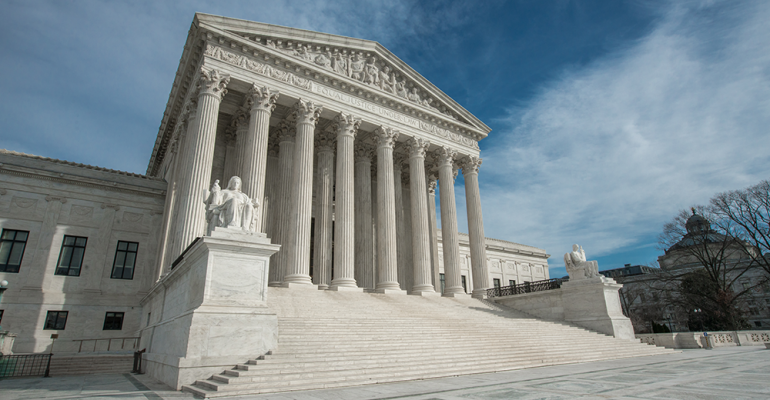The SEC can still pursue disgorgement against defendants in federal court, the Supreme Court ruled today, including from investment advisors. However, some caution that wording in the Court’s decision may limit how much money the Commission can seek from defendants.
Disgorgement is the SEC's way of reclaiming lost investor money from perpetrators of fraud or illegitimate investment schemes. The Court previously ruled that disgorgement could be subject to a five-year statute of limitations in the 2017 case Kokesh vs. SEC. In today's ruling in Liu vs. the Securities and Exchange Commission, the Court ruled 8-1 that disgorgement was permissible provided that the award levied against a defendant “does not exceed a wrongdoer’s net profits." Justice Sonia Sotomayor wrote the majority opinion, with Justice Clarence Thomas being the sole dissenter.
In 2016, the SEC charged Charles Liu and Xin Wang with misappropriating about $27 million from investors. Liu had spent nearly $20 million of investor money “on stensible marketing expenses and salaries,” according to the SEC. The investigation also found he diverted much of those funds towards personal accounts and a company run by Wang, according to the today's ruling. The Supreme Court heard the case earlier this year.
Liu argued that the Court's ruling in Koresh vs. SEC meant that the SEC could not pursue disgorgement fees at all. Today's ruling was largely expected, said Max Schatzow, an attorney with Stark & Stark. Few believed the court would eliminate the SEC’s ability to seek disgorgement altogether, he said.
“The Court realized disgorgement is a necessary tool that the Commission has,” he said.
But he Court’s decision could potentially have an impact in settlement negotiations, according to Schatzow. He said that the Court’s wording that disgorgement fees "may not exceed the net profits" of the wrongdoer gives defendants a way to argue that penalties levied against them should be limited.
“They’ll have this newfound ability to argue to limit what the disgorgement is, and they’ll point to expenses and try to use other creative arguments to say that (money) is not a net profit,” he said.
Losing disgorgement would have had a large effect on the SEC; it is is the most common penalty obtained by the Commission, according to a client alert from the law firm Reed Smith. In fiscal year 2018, disgorgement made up 64% of the agency’s total monetary relief, which increased to 74% in fiscal year 2019 (although disgorgement can also be sought in administrative filings, not only in federal court).
During the past several years, the SEC criticized the impact the Kokesh ruling (and the statute of limitations it imposed) had on their ability to seek disgorgement, according to Kurt Wolfe, an investigations and enforcement attorney with Troutman Sanders. But he believed the Court’s decision in Liu would also impact the SEC, because of the narrow definition of what money the commission could pursue.
While it might be easy to determine whether money is an ill-gotten gain in the case of a Ponzi scheme, Wolfe said that in most cases it can be difficult to discern if money is being used for legitimate expenses, even if it was generated in an illegitimate manner. Requiring the SEC to parse through a defendant’s history to separate legitimate expenses from what should be disgorged is a “big ask” of the Commission, according to Wolfe.
“The SEC doesn’t often want to get in those weeds and try to figure it out,” he said.
Wolfe also questioned how the Commission should reconcile the decisions in Liu and Kokesh. In the newest ruling, the Court clarified that the disgorgement sought in Kokesh exceeded the amount of ill-gotten gains. This meant the kind of disgorgement in that earlier case was more like a penalty, which should be subject to a statute of limitations, Wolfe said.
“But if I, as the SEC, seek disgorgement...if all I want are the illicit proceeds, am I still subject to a five-year statute of limitations?” he asked.





